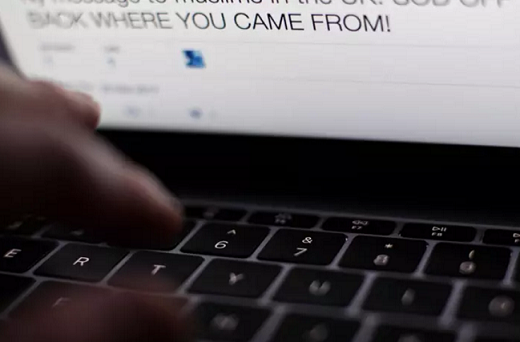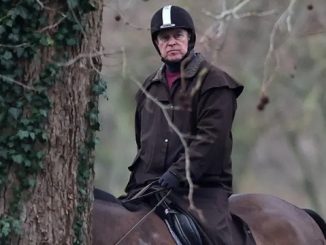
Online hate crimes should be treated as seriously as abuse committed face-to-face, prosecutors in England and Wales have been told.
Revising its guidance for prosecutors, the Crown Prosecution Service said the impact of tweeting abuse can be as “equally devastating” as shouting it.
The guidance includes offences against bisexual people for the first time.
Director of Public Prosecutions Alison Saunders said online abuse can fuel “dangerous hostility”.
She said the internet and social media in particular have provided “new platforms” for abuse.
Writing in the Guardian, she said recent events in the US – where white supremacists clashed with anti-racism groups in Charlottesville – showed what online abuse can lead to.
“Whether shouted in their face on the street, daubed on their wall or tweeted into their living room, the impact of hateful abuse on a victim can be equally devastating,” Ms Saunders said.
In 2016, a man was jailed for harassing Liverpool Wavertree MP Luciana Berger after a campaign of anti-Semitic abuse. She said she welcomed the CPS guidelines.
The CPS says it has set out more clearly what victims and witnesses should expect from the law.
The new legal guidance and accompanying CPS public statements guide prosecutors deciding whether to charge suspects of offences motivated by hostility towards people of different races, religions, sexuality, gender and disability.
Cases should be pursued with the same “robust and proactive approach used with offline offending”.
It says exceptions to prosecution should be made in the case of children who may not appreciate the potential harm they have caused by publishing something online that amounts to a hate crime.
Until now, CPS guidance on hate crime motivated by sexual orientation has had a general focus on all victims.
The new guidance specifically refers to bisexual victims, particularly if they report being victimised by gay men or lesbians.
According to the latest figures, the CPS successfully prosecuted more than 15,000 hate crime incidents in 2015-16 – the highest number ever. A third of those convicted saw their sentence increased because of the hate crime element of the offence – also a record.
However, in the same year, the number of cases being referred by police to prosecutors for a decision fell by almost 10%.
Nik Noone, chief executive of Galop, a charity that campaigns against anti-LGBT violence and hate crime, said its own research suggested many victims did not have confidence in the police to report online hate attacks.
“The threshold for prosecuting online hate crime is very high, and the investigative process is often too slow and cumbersome to respond to the fast-moving online world,” she said.
Analysis by Dominic Casciani, BBC home affairs correspondent
Hate crime is any criminal offence “which is perceived by the victim or any other person to be motivated by a hostility or prejudice”.
The difficulty is working out where the line is drawn between that and words that are simply offensive.
Obvious examples are words linked to violence – such as the racially-aggravated threat made by an aristocrat on Facebook against businesswoman Gina Miller.
Other online abuse can amount to harassment or the crime of inciting hatred.
Campaigners say too many charging decisions based on existing guidance have landed on the wrong side of the line, leaving victims let down.
If the CPS is serious about getting tough with online hate crime, they say there needs to be more than a change in guidance – there needs to be a change in will.
Source: bbc.co.uk






Be the first to comment